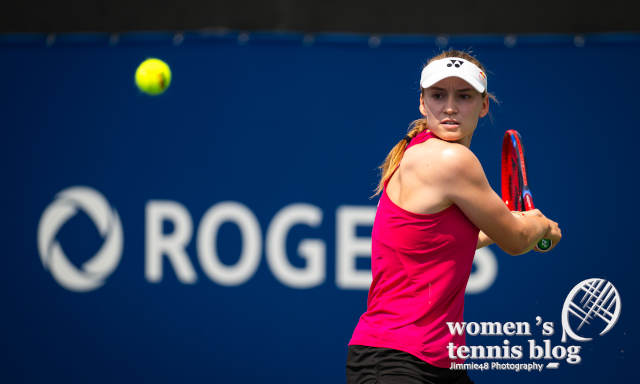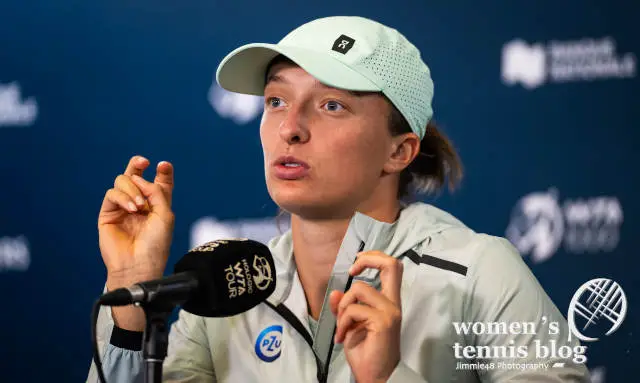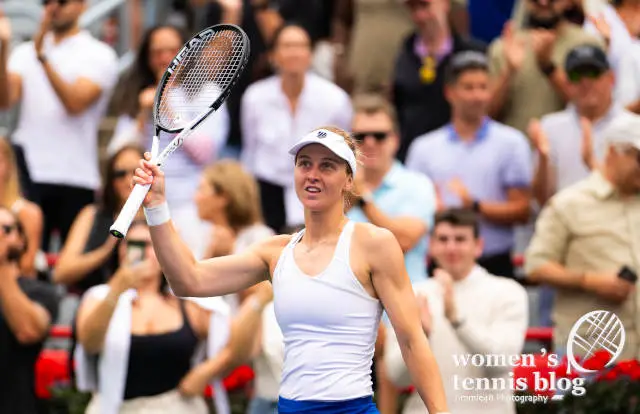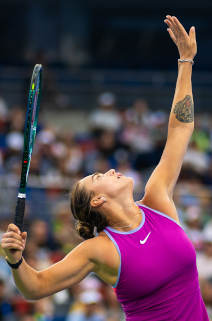In the high-stakes world of professional tennis, players are no strangers to the rigors of competition. But recently, three notable players—Elena Rybakina, Liudmila Samsonova, and Iga Swiatek—have voiced their frustration over tournament scheduling and late-night matches that seem to disregard player well-being. These athletes are shedding light on an issue that needs serious attention.

Elena Rybakina felt “destroyed” by Montreal tournament scheduling
Elena Rybakina was devastated by her experience at the Omnium Banque Nationale in Montreal. Rybakina’s quarterfinal victory against Daria Kasatkina didn’t conclude until 03:00 local time on Saturday. To add insult to injury, her semifinal match against Liudmila Samsonova was delayed due to rain and had to be played on Sunday. As a result, Rybakina’s tournament journey took a toll on her physically and mentally.
“I feel destroyed because of the scheduling and the whole situation,” Rybakina lamented. “Unfortunately, players can’t do much in these situations.” Despite her best efforts to manage her condition, the poor scheduling took its toll, resulting in injuries that affected her performance.
Rybakina placed blame on the WTA for what she saw as inadequate leadership and scheduling decisions.

Iga Swiatek joins the chorus of frustration
World number one Iga Swiatek resonates with the sentiment expressed by Rybakina. Swiatek has experienced her fair share of late-night matches, particularly during her time at the Madrid Open and the Internazionali BNL d’Italia. At both tournaments, her matches concluded close to or after midnight, leaving her to grapple with the challenge of managing her physical recovery and mental well-being:
It’s not like we’re finishing and going to sleep after two hours. For me, I’m happy if I go to sleep four hours after I finish. I have almost one hour of treatment, obviously media, I have to stretch after the match, food, and then getting the adrenaline down isn’t easy as well. I wish it could change, that’s all.
Swiatek emphasized the need for the WTA to prioritize players’ health and well-being. The intense travel schedule and back-to-back tournaments make it challenging for players to recover adequately. “Maybe we should focus more on what is healthy for players,” Swiatek suggested. She acknowledged that the tour’s demands can be overwhelming and hopes for a more considerate approach, especially as more mandatory and longer tournaments are introduced.

Liudmila Samsonova furious about playing Montreal semifinal and final one after the other
Liudmila Samsonova, following her final loss to Jessica Pegula at the Omnium Banque Nationale, unleashed her frustration against the tournament organizers. The Russian player was compelled to play against Elena Rybakina mere hours before the final due to rain delays. Both physically and mentally exhausted, Samsonova could only secure one game in the final that lasted just 49 minutes.
In a passionate press conference, Samsonova criticized the organizers for not prioritizing players’ well-being.
I tried to do everything possible with my physio to recover. After an hour of treatments, I had to play again. It hurts to realize that the tournament organizers don’t give a damn about us tennis players. If it’s raining, you need to do everything possible to avoid two games being played on the same day.
These athletes are calling for a more player-centric approach to scheduling. As the tennis community takes note of their frustrations, it’s hoped that positive changes will be implemented to ensure that players are able to perform at their best while maintaining their physical and mental health. It’s a wake-up call that emphasizes the need for balance and consideration within the demanding world of competitive sports.







